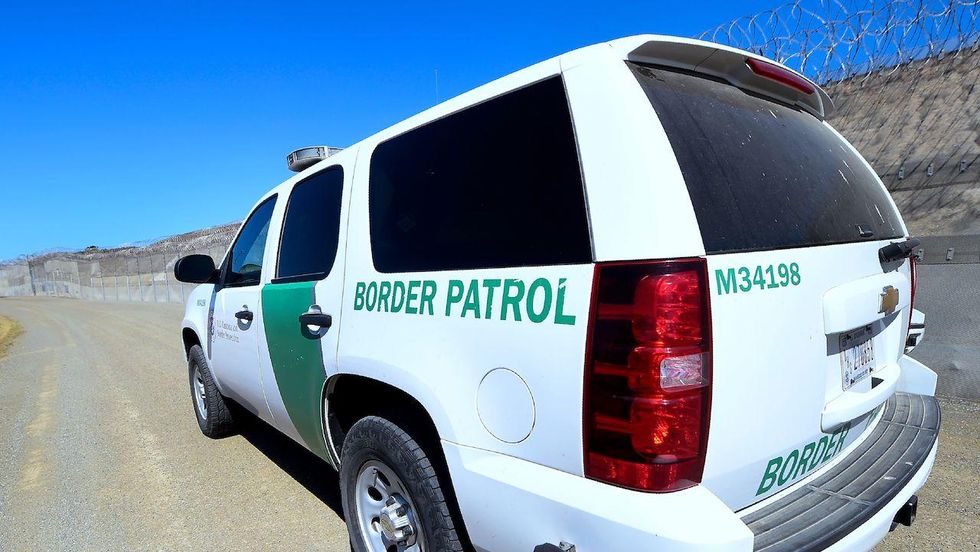
More than 30 illegal immigrant cases were dismissed after a glitch caused a nationwide computer shutdown in the Bureau of Prisons system. (Frederic J. Brown/AFP/Getty Images)

A California federal court dismissed 32 illegal immigrant crossings cases on Wednesday after a nationwide computer crash delayed detainees from receiving a timely arraignment, The San Diego Union-Tribune reported.
Federal Defenders of San Diego filed writs of habeas corpus at the government's request for 37 clients whose arraignments were scheduled for earlier that day but weren't presented by authorities.
“The Bureau of Prisons has experienced a nationwide computer shutdown which began early Tuesday morning and is ongoing,” Kelly Thornton, spokeswoman for the U.S. Attorney’s Office in San Diego, told the Union-Tribune. “This has affected the Metropolitan Correctional Center’s ability to process new inmates."
“As a result, the United States filed motions to dismiss a number of cases against defendants who were not brought to court in a timely manner,” she added. “The MCC’s computer system is improving, and we expect this issue to be resolved in the near future.”
U.S. District Chief Judge Barry Moskowitz dismissed 32 misdemeanor cases at a hearing on Wednesday morning. He also ordered authorities to produce five felony detainees, who were arraigned later that morning.
Defense attorneys claim it's not just a computer problem that caused the recent problems.
Many believe it's the court system inability to handle the influx of cases since the government cracked down on illegal immigration.
“Our court system can’t handle it. We don’t have the infrastructure and can’t provide appropriate due process and representation,” Federal Defenders of San Diego executive director Reuben Cahn told the Union-Tribune.
Federal Defenders of San Diego is an agency that handles much of the public criminal defense work in the Southern District of California.
“People are falling through the cracks,” Cahn said. “The ability to move that number of cases isn’t there.”
The rule of the thumb is typically one day for arraignment unless authorities detained the person over a weekend.
Ryan Stitt, who represented the 37 detainees, told the newspaper that he believes many of the arraignment delays could have been avoided.
He said authorities transported the entire group to the Metropolitan Correctional Center on Tuesday morning, rather than bringing them over continuously during the Memorial Day weekend. Of the five felony cases that were moved forward, four arrests were made Saturday and one on Sunday.
Border Patrol stations, ill-equipped for long-term confinement, held the detainees until Tuesday, Stitt said.
“They are sitting in really horrible conditions, with inadequate food, inadequate clothing, inadequate bedding,” Cahn said.
U.S. Department of Justice spokesman Devin O’Malley told the Union-Tribune that the prison’s computer shutdown was responsible for Tuesday's problems and that the delay was not caused by the zero-tolerance policy.
“We must promote and enforce the rule of law in order to protect our nation and its citizens,” O’Malley said. “The Department of Justice, through multiple avenues, has been in touch with administrators of the federal judiciary in order to find practical solutions to an expected increase in prosecutions along the Southwest border. We look forward to continued coordination with the courts and their Chief Judges in order to properly adjudicate cases and respect due process rights.”